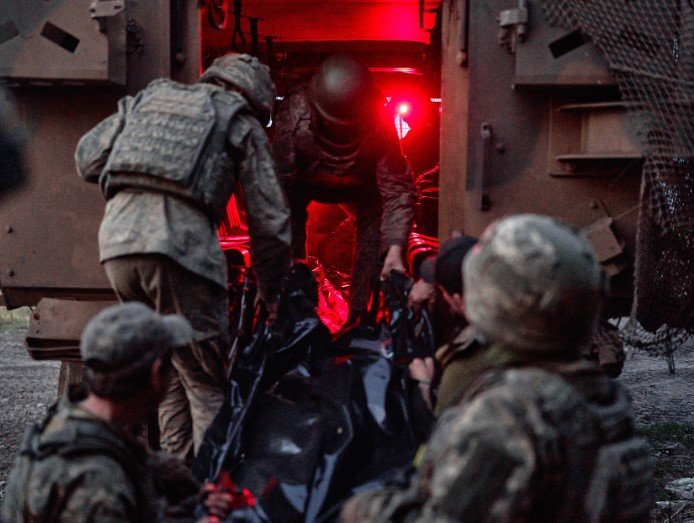Pressure mounts on filmmaker as human rights groups and Sahrawi activists demand production halt
Christopher Nolan has found himself in the middle of a storm — and it’s got nothing to do with Hollywood politics or summer blockbusters. His upcoming film The Odyssey, starring Matt Damon and Zendaya, is being shot in Dakhla — a city in the disputed region of Western Sahara. And critics say that’s not just a location decision — it’s a political statement.
International groups are urging the British filmmaker to stop filming in what they describe as a “militarized zone under foreign occupation.” As cameras roll in the desert, so do the calls for accountability.
Dakhla: A beach town or a battlefront?
At first glance, Dakhla might seem like an idyllic shoot location. Turquoise coastlines, dramatic dunes, and uninterrupted skies — a cinematographer’s dream. But the situation on the ground is far from serene.
On July 17, Nolan, Damon, and Zendaya were photographed arriving in the city, prompting a flurry of online activity. Pro-Moroccan outlets celebrated the shoot as a win for the country’s image. But for Sahrawi activists, the visit was anything but glamorous.
“Dakhla is not just a beautiful place with cinematic sand dunes,” FiSahara, the Western Sahara International Film Festival, said in a sharply-worded statement. “It is an occupied and militarized city whose Indigenous Sahrawi population is subjected to brutal repression.”
That’s not just activist rhetoric. The United Nations still classifies Western Sahara as a “non-self-governing territory.” No referendum has been held on its status, and no sovereign state formally recognizes Morocco’s claim over it.

Behind the camera, a colonial shadow
It’s not the first time a Western production has shot in contested regions, but Nolan’s stature — and the scale of The Odyssey — are making this different.
FiSahara’s statement gained traction after it framed the shoot as an endorsement of occupation. They argued that by filming in Dakhla, Nolan was lending Hollywood legitimacy to Morocco’s contested presence in the region. That’s a heavy accusation — especially in a year when global film discourse is increasingly intertwined with politics.
Some observers say this isn’t just about optics. It’s about money, influence, and whose stories get erased.
• Western Sahara has been on the UN’s decolonization list since 1963
• Morocco controls over 80% of the territory, while Sahrawi Arab Democratic Republic claims sovereignty
• Human rights watchdogs have documented censorship, arrests, and surveillance of Sahrawi activists
These aren’t fringe reports. Amnesty International and Human Rights Watch have both flagged concerns over Moroccan actions in Western Sahara in recent years.
Star power, silent faces
As the backlash grows louder, the stars of the film have stayed noticeably quiet. Matt Damon and Zendaya have not issued statements or responded to media queries. Neither has Nolan.
The silence is strategic, some say. Others call it disappointing.
“This is about visibility,” said a Sahrawi journalist living in Spain, who asked not to be named. “We exist. Our suffering exists. And when someone like Christopher Nolan comes and pretends this is just ‘Morocco,’ he erases us.”
The stakes are different for everyone involved. For Damon and Zendaya, it’s a professional project. For Sahrawis, it’s about erasure. And for Nolan, it’s a question of whether cinema should be neutral — or if it ever can be.
Morocco’s PR machine and the ‘southern provinces’ narrative
There’s also the other side of the story — the Moroccan government’s ongoing campaign to present Western Sahara as an integrated part of the kingdom.
State-backed Moroccan media was quick to celebrate the high-profile arrivals in Dakhla. Headlines called it a “boost to regional tourism” and “proof of peace and prosperity in the southern provinces.”
But Sahrawi voices say this narrative whitewashes a deep history of repression and unresolved conflict.
Let’s break down some key differences in language:
| Term Used | Meaning | Used By |
|---|---|---|
| “Southern Provinces” | Implies Moroccan sovereignty | Moroccan government/media |
| “Occupied Western Sahara” | Denotes illegal annexation | UN, FiSahara, Sahrawi groups |
| “Non-self-governing territory” | UN term for territories without self-rule | United Nations |
These terminologies matter. They frame international perception. And when a Hollywood film implicitly adopts one over the other, it sends a signal — whether intended or not.
Cannes-worthy cinema or conflict exploitation?
There’s also a creative dilemma: can a mythological story about homecoming and resistance be told ethically in a land still awaiting its own?
Nolan is known for ambitious, cerebral films. The Odyssey — his take on Homer’s epic — is reportedly a sprawling, time-twisting retelling. But the irony isn’t lost on critics.
“They’re making a movie about exile in a place defined by displacement,” one Sahrawi poet wrote on X, formerly Twitter. “You couldn’t script this better.”
FiSahara has invited Nolan and the cast to visit Sahrawi refugee camps in Tindouf, Algeria — home to over 170,000 displaced people. No response has been issued yet.
What happens next?
Right now, production continues. The Moroccan government appears fully supportive. The film’s release is still set for next summer.
But pressure’s building. Online petitions are growing. Letters from advocacy groups are flooding Nolan’s production office. Even a few lawmakers in Spain and Norway have weighed in, calling the film’s location “irresponsible.”
Whether the film changes course is anyone’s guess. For now, the dunes of Dakhla are quiet. But off camera? The voices are getting louder.








